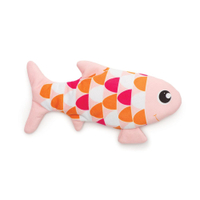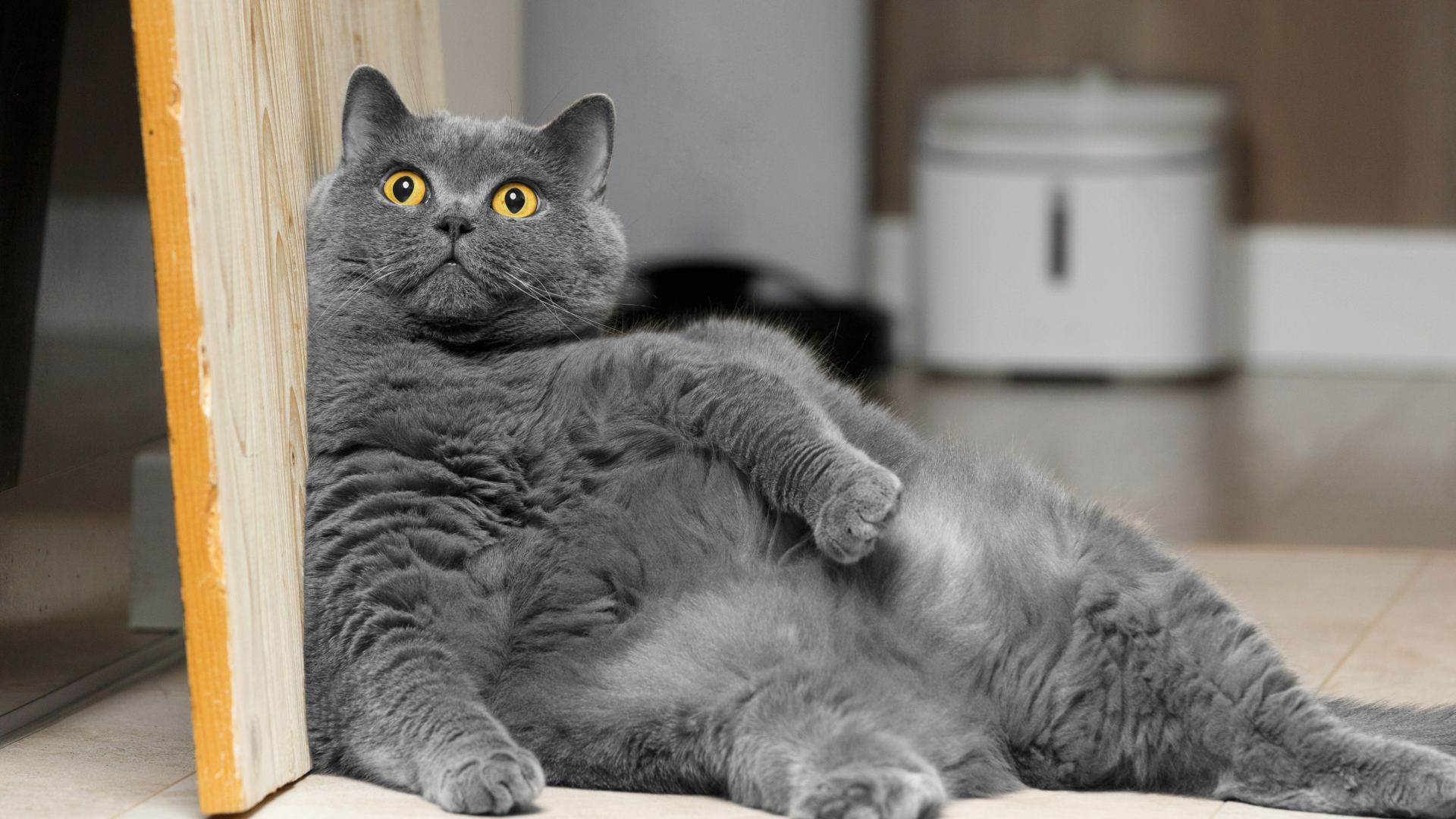‘It makes them feel euphoric’: A vet reveals the mystery behind catnip and what it does to cats
Ever wondered what catnip does to cats? Here’s everything you need to know
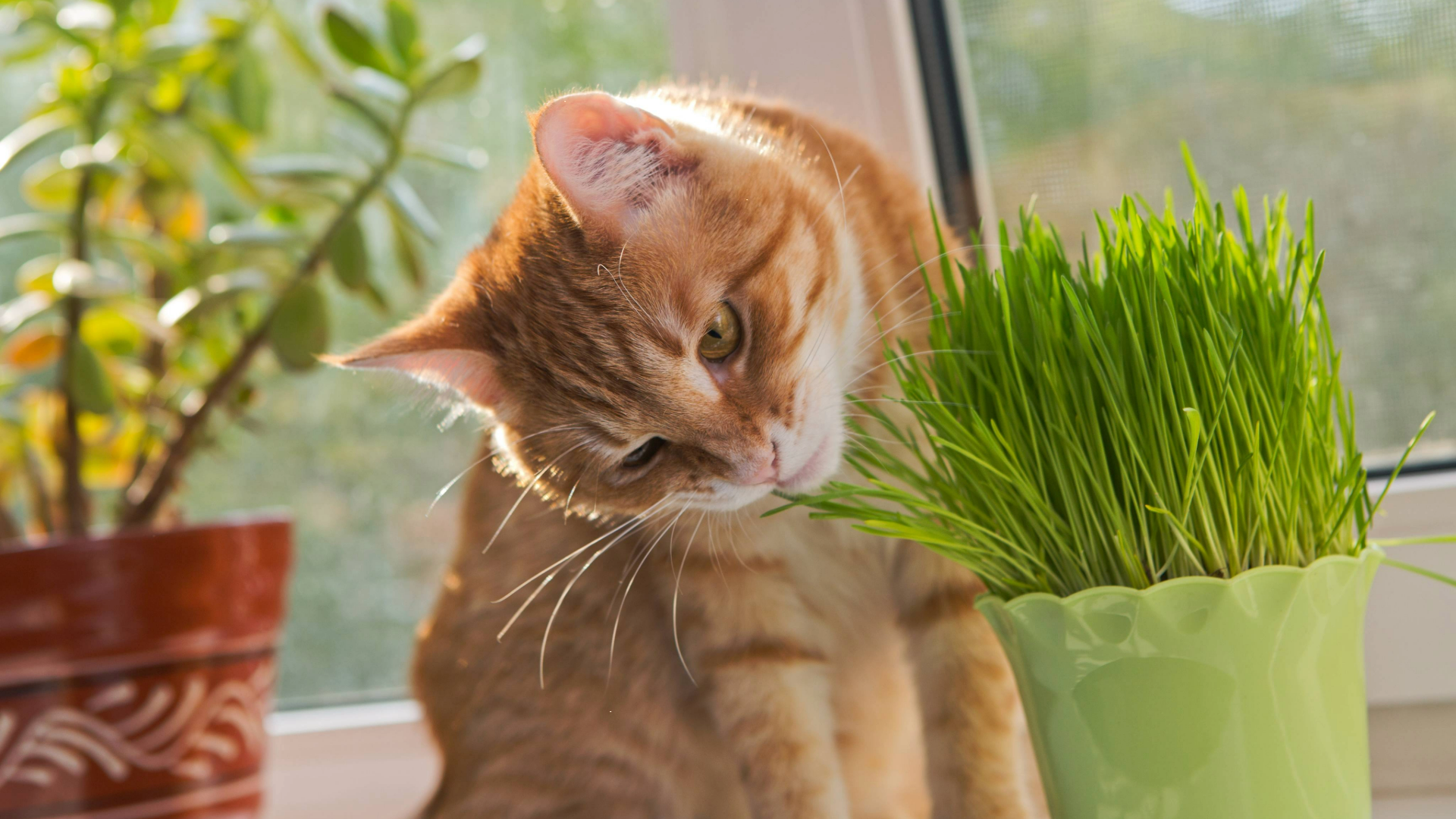
What does catnip do to cats? This little green plant might look like an ordinary weed, but it can have a surprising effect on our furry friends, causing them to roll around, rub, vocalize more, and feel extra playful. It can even help soothe anxiety in cats!
The best catnip toys are a great way to level up your cat’s playtime, adding more excitement and fun into the mix – unless you have one of the few felines that don’t react to it. Whether you want to encourage cat play or promote relaxation, catnip offers plenty of benefits – but why?
To get to the bottom of this mystery, we called in Dr. Rebecca MacMillan to explain the real reason why cats react this way and whether it’s safe for them. She’s a vet with more than 16 years of expert experience working with cats and has answered your burning questions below.
What does catnip do to cats?
We all know what catnip does to cats, but maybe not so much about the mechanisms behind it. The secret ingredient that drives most cats wild is nepetalactone, which is an oil found in catnip leaves, and just the smell of it is enough to make your cat kick off. So why do cats go crazy for catnip?
If you've ever watched your cat having a really good sniff of something, such as messages from other cats sprayed around your garden, you may have noticed its mouth hanging open as it does so. And that's because it has an extra scent organ in the roof of its mouth: the vomeronasal gland. It's a special scent pathway that's a hotline directly to the brain, and it's mainly used for identifying pheromones from other cats.
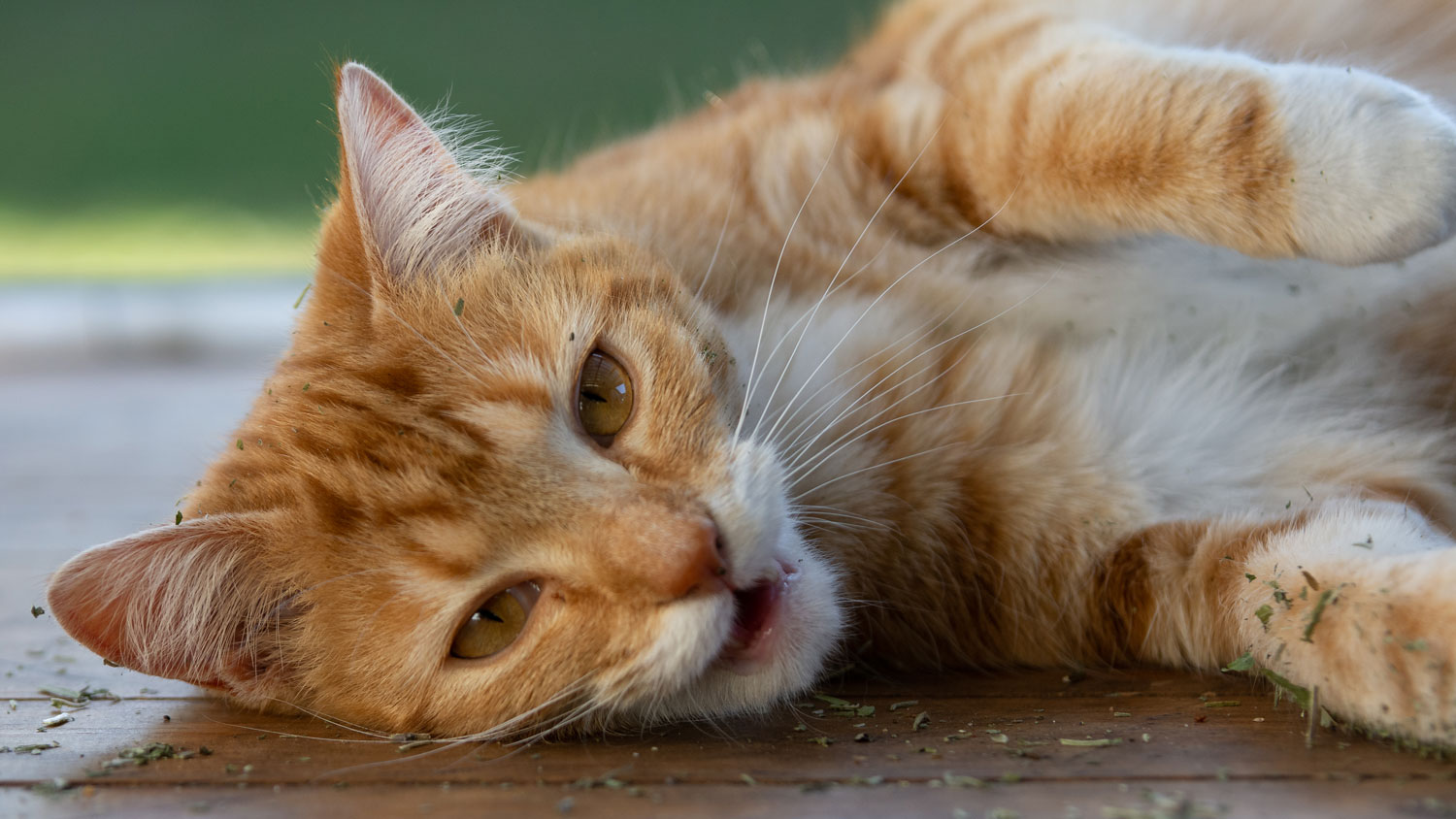
Nepetalactone closely mimics feline sex hormones, and that's why the behavior of cats on catnip can look a lot like females in heat; some get really playful or sometimes aggressive, or become really happy or affectionate, or just completely relaxed. So, does catnip make cats high? In a way, yes; a chemical's acting on their little brains and temporarily modifying their behavior.
Dr. MacMillan says: "Cats love catnip because of its effects on them. It acts as a natural mood enhancer, making many cats feel euphoric, so it's no wonder they enjoy it! Studies suggest that catnip acts as an insect and mosquito repellent. Cats in the wild may have evolved to use it to protect themselves against parasites."
PetsRadar Newsletter
Get the best advice, tips and top tech for your beloved Pets
What is catnip?
Catnip – or nepeta cataria as it's known to botanists – is a member of the mint family that can be found growing wild across North America and Europe. It closely resembles a standard mint plant, but it'll stand out when in bloom thanks to its blue, white, pink or lavender flowers. It's really easy to grow at home (as long as your cat doesn't find and devour it), and when dried its leaves look a lot like oregano.
If you're confused about the difference between catnip and catmint, our catmint vs. catnip article can explain, but the main thing you need to know, as far as your moggy's concerned, is that catnip is The Good Stuff.

Benefits of catnip
Because catnip often has a stimulant effect on cats, it can be enormously beneficial; not just to your cat, but to you as well. We don't mean that you should try it yourself – it has little, if any effect on people – but it can be used as an effective cat training tool.
For example, if you've bought one of the best cat scratching posts but kitty still prefers to work out its claws on the furniture, rubbing some catnip into the scratching post can be just the thing to make it more attractive to your cat.
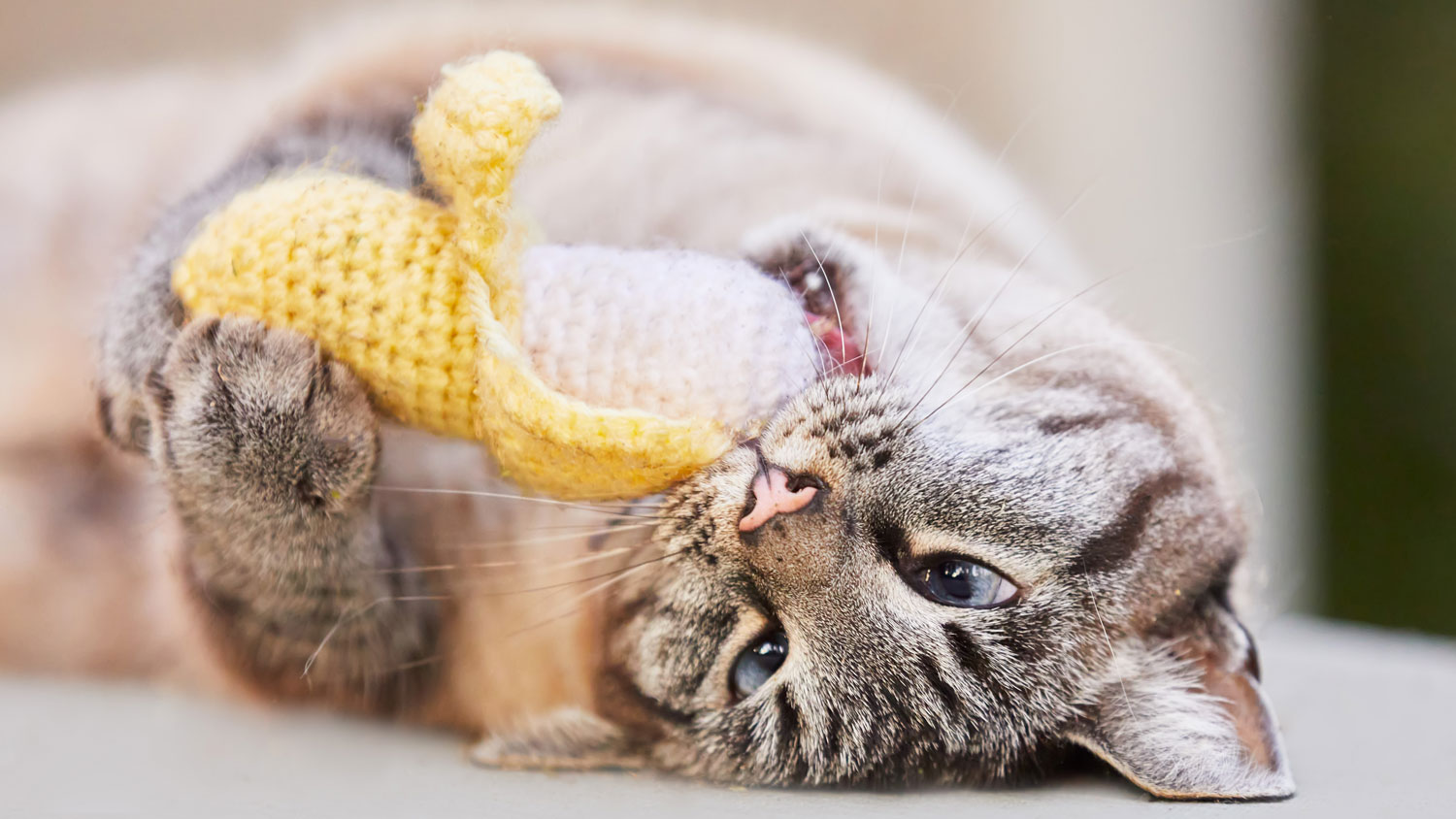
Beyond behavior adjustment, catnip's a great way to add a little enrichment to your cat's life. Playing with a catnip toy can give a more sedentary feline some much-needed exercise, and while in some cats you may find that catnip actually has a more sedative effect, this means you can use it to help calm kitty in stressful situations, such as trying to get a scared cat to the vet.
Dr. MacMillan says: "Catnip can be a great reward for cats. Many owners use it as a training tool or to encourage play. You can purchase catnip-filled toys or put some into existing toys to encourage your cat to be more active. Putting some catnip around a scratch post may mean your cat starts using it more, which can be particularly helpful if they have been scratching at your furniture!
For cats that are known to become sedate and chilled out on catnip, it can be a useful aid to help them relax on stressful car journeys. Just remember that 30% of cats will show no response to catnip at all, so just monitor your pet while trying it."
We’ve tested countless catnip toys, but the Groovy Fish reigns supreme and has secured the top spot in our buying guide. It features a refillable pocket to keep the catnip potent, and when its stomach is tapped, the fish automatically flips from side to side, engaging your cat’s natural hunting instincts.
Risks of catnip
Is catnip bad for cats? In short, no. Hitting the catnip too hard can result in dizziness, vomiting or diarrhea, but while this can be worrying for you, your cat will likely sleep it off and be fine afterwards. And ultimately this situation's unlikely, for reasons we'll come to next.
Not all cats exhibit playful or chilled behavior when exposed to catnip; for some it's just too stimulating, and an over-stimulated cat is one that may suddenly turn on you with all of its sharp ends. You needn't worry about your cat overdosing on catnip, though; even if it decides to eat a whole load of it, the very worst that'll happen is an upset tummy.
Dr. MacMillan says: "There is no evidence that catnip is bad for cats. Its effects are short-lived and only seem to last up to half an hour. Overdosing is not reported, and it doesn’t appear to be addictive in cats. The only instance I can think of where it could be bad is if your cat becomes over-stimulated by it. This could lead to them biting, scratching, or causing damage to your possessions as they race around. As such, I would advise using catnip in small amounts, as an occasional treat, rather than all the time."
How long do catnip effects last?
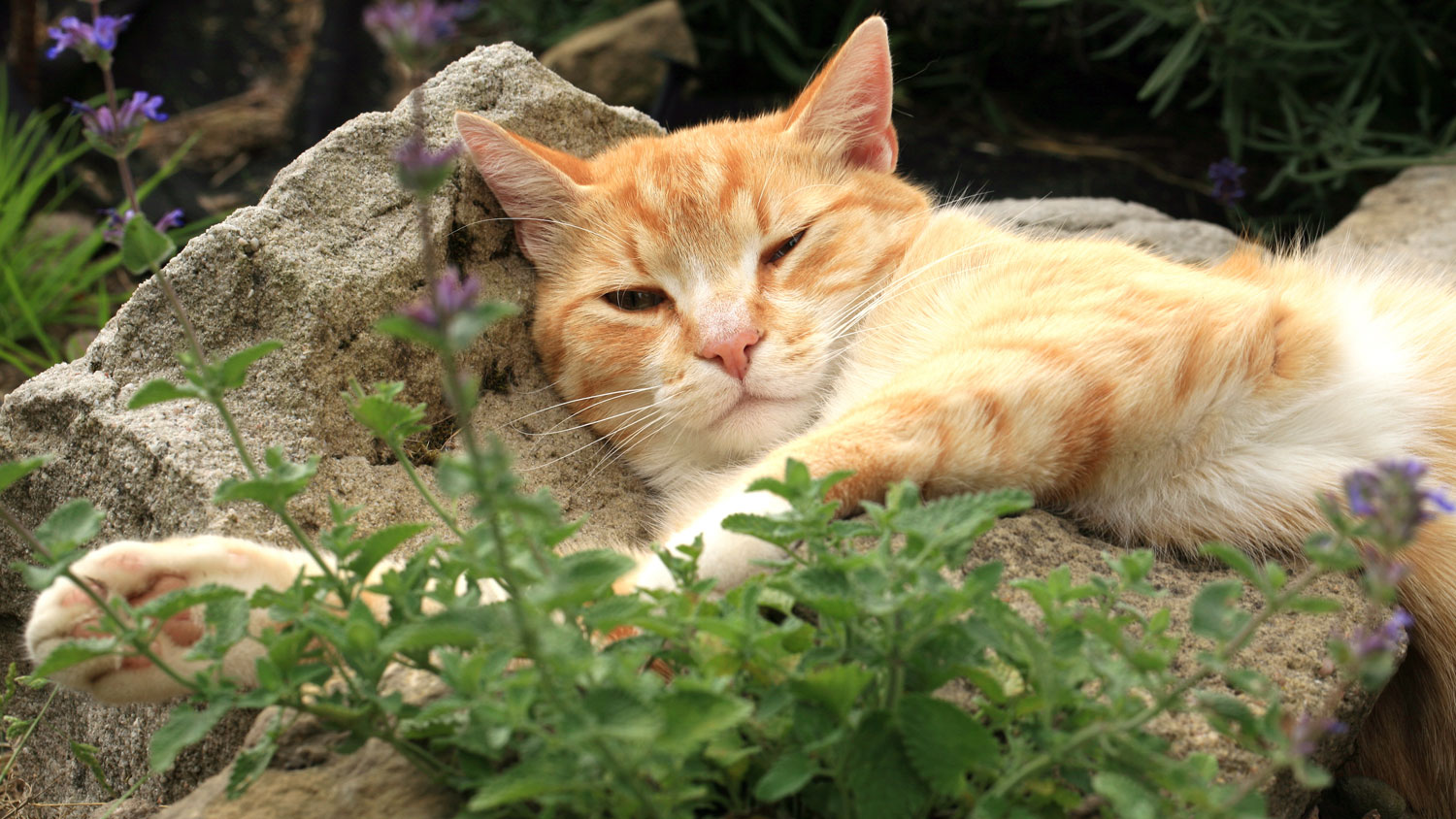
The great thing about catnip is that, from a cat's perspective, it's entirely self-limiting. The effects of catnip kick in almost instantly and can last for 10 minutes or so; after that, though, the effect wears off and, crucially, for a good while afterwards (anything between half an hour and a few hours) your cat will be completely immune to its effects and utterly uninterested in the catnip it was so excited about a few minutes previously. Which is a relief; nobody should ever have to deal with an out-of-control feline on an unstoppable catnip bender.
Dr. MacMillan says: "The full effects of catnip may last up to 30 minutes, but for some cats, it only lasts five to 15 minutes before they calm down. Many owners then report a fatigue period following this initial hyperexcitation. This could last two to three hours, during which time your cat may become more sedate and sleepy.
"After this time its effects will have fully worn off and your cat will usually become receptive to catnip again. If your cat becomes chilled out and relaxed on catnip, this can be a helpful tool during stressful events like fireworks or a car journey. Just make sure you know how your cat reacts to catnip and practice a few times first before using it in this way."
How often should I give my cat catnip?
Thanks to the speed at which catnip wears off, resulting in your cat losing interest, you're not going to have to deal with a cat constantly demanding another hit on the 'nip. Ideally, though, you should use catnip just like any of the best cat treats: sparingly.
Dr. MacMillan says: " Technically there is no limit as to how often you can offer your cat catnip. It has not been shown to be addictive and there is no known toxic dose as cats don’t usually ingest it.
"However, some cats can become immune or desensitized to its effects after a while which means they won’t feel the benefit. It is best used as a treat or a training tool, rather than being freely available.
"Your cat will see it as a reward, as well as being able to make the most out of those feel-good endorphins. It’s also best used in small amounts at a time to stop some cats from becoming overstimulated by it."
Can kittens have catnip?
Can kittens have catnip? Dr. MacMillan says: "It is safe for cats of any age to have catnip, including kittens. Some owners may use it as a training tool for kittens to encourage them into a litter tray or to use a scratch post. It is also fine for cats with medical issues to have catnip. Any time you introduce something new to your pet, you should do so gradually.
"Offer small amounts at a time, to begin with, and monitor the effects on your cat closely. If your cat shows little or no signs of effect, you can increase the amount slightly next time. There’s a chance your already active kitten may become more boisterous in their play under the effects of catnip, which could lead to more scratching and biting. Just remember that effects vary considerably between individuals, and 30% will show no reaction at all."
To learn more, check out our guides that answer, 'What is silver vine?' and 'Can cats eat catnip?' Or, you might want to learn how to play with a cat using the best cat toys.

Rebecca is a veterinary surgeon who graduated in 2009 from the Royal Veterinary College in London. She has a wealth of experience in first opinion small animal practice, having done a mixture of day-to-day routine work, on-call emergency duties and managerial roles over the years. Rebecca enjoys medicine in particular and she is proud to have recently achieved a BSAVA postgraduate certificate in small animal medicine (with commendation).
Edited by Georgia Guerin.
Recent updates
This page was last updated on February 21 by Megan Milstead.
Jim is a writer, performer and cat-wrangler based in Bath, who last year adopted a pair of sibling rescue cats who turned out to be effectively feral, and has spent a lot of time since then trying to get them accustomed to people (some success) and each other (ongoing project).
- Andy Hartup
- Megan MilsteadStaff Writer
